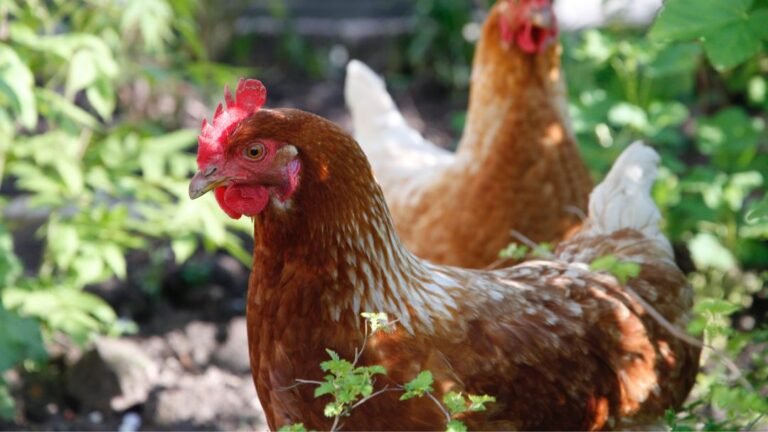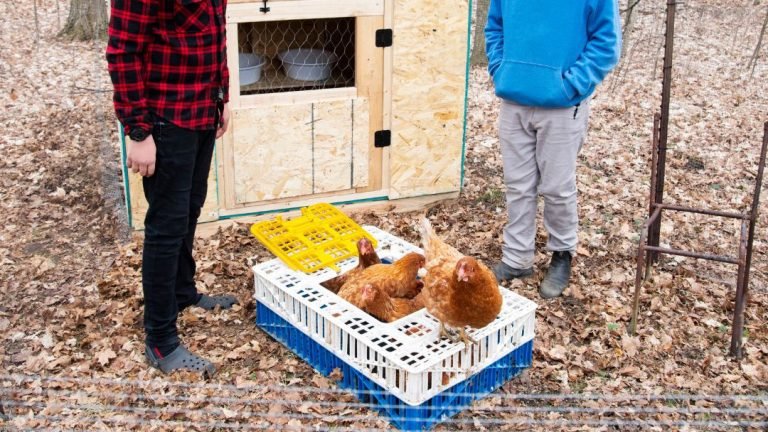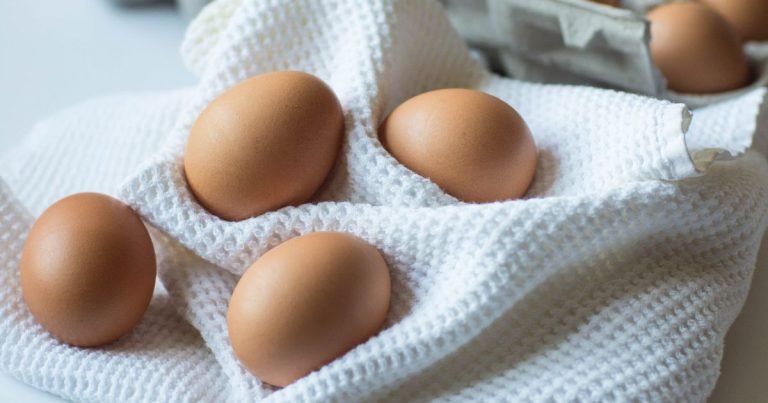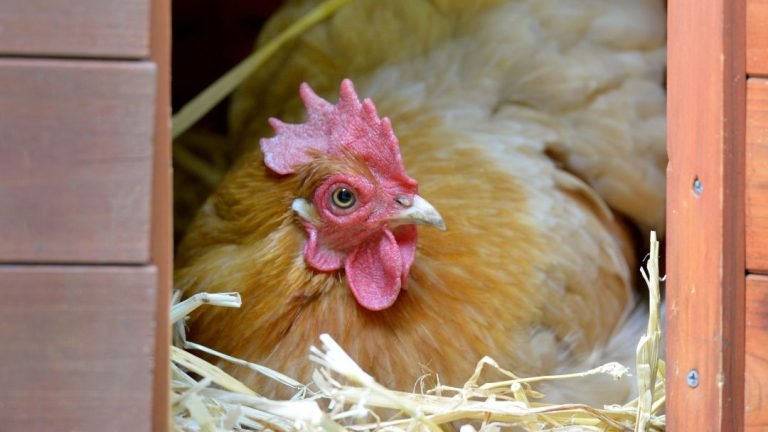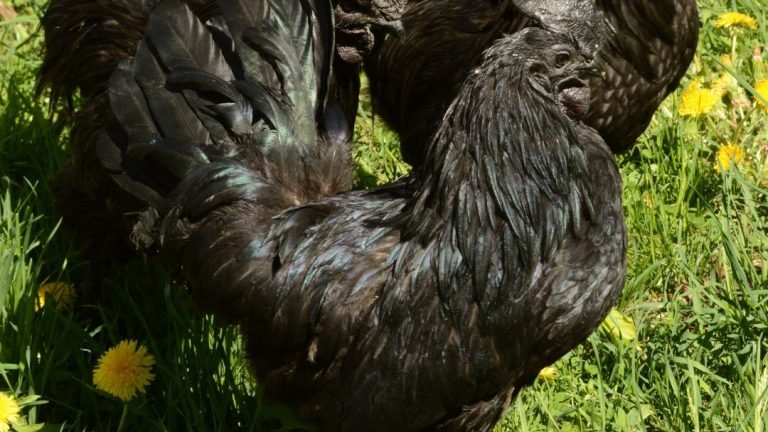Chickens can typically go without food for about 48 hours before their health is significantly affected. Chickens are resilient creatures, capable of adapting to various environmental conditions.
However, their survival heavily depends on the availability of essential resources, including food. These feathered friends require a constant supply of nourishment to maintain their overall well-being. This raises a crucial question: How long can chickens actually go without food?
Understanding their limits is essential for responsible chicken care and welfare. We will delve into the specifics, examining the maximum duration chickens can endure without food and the potential consequences it may have on their health.
By gaining insights into these considerations, poultry owners and enthusiasts will be better equipped to ensure the proper nourishment and support for their feathered companions. So, let’s explore the fascinating world of chicken resilience and their dietary needs.
Understanding The Chickens’ Survival Mechanism
Chickens are remarkable creatures with a natural ability to adapt to food scarcity. Their survival mechanism allows them to endure extended periods without food, relying on a unique set of features that enable their survival. Understanding this mechanism sheds light on the incredible resilience of these birds.
The significance of their unique digestive system
One of the key factors that contribute to chickens’ ability to go without food for extended periods is their unique digestive system. Unlike humans and many other animals, chickens possess a highly efficient and specialized gastrointestinal tract that is specifically designed to extract maximum nutrients from their food.
The first line of defense in their digestive system is the crop, a part of their esophagus where food is stored before being broken down further. The crop acts as a storage compartment, allowing chickens to consume larger quantities of food and slowly release it for digestion over time.
Furthermore, chickens have a muscular stomach called the gizzard, which contains small stones or grit that aid in grinding and breaking down food. This powerful mechanical grinding action enables them to extract nutrients effectively, even from fibrous materials like plant matter and grains.
Additionally, their intestines are optimized for absorbing nutrients efficiently. The walls of the intestines are lined with tiny finger-like projections called villi that increase the surface area for nutrient absorption. This adaptation ensures that chickens can make the most of the available food resources.
Their ability to recycle nutrients also contributes to their survival during times of food scarcity. Chickens have a sophisticated method of reabsorbing nutrients from their droppings. By doing so, they minimize nutrient wastage and maximize their chances of survival in challenging conditions.
In conclusion, chickens possess a remarkable survival mechanism that allows them to endure periods without food. Their unique digestive system, combined with their ability to recycle nutrients, ensures their resilience. Understanding these adaptations not only highlights their incredible ability to adapt to various environments but also emphasizes the importance of providing adequate nutrition for these fascinating creatures.
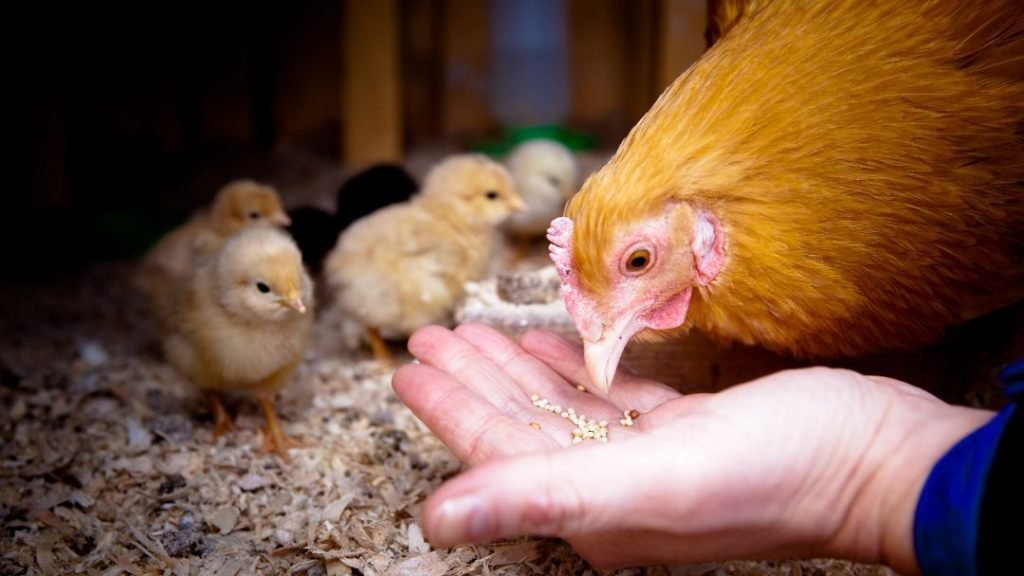
How Long Can Chickens Survive Without Food?
Chickens are resilient creatures, capable of enduring various adverse conditions. However, when it comes to their nutritional needs, it’s essential to understand how long they can survive without food.
Factors such as age, health condition, environment, and alternative food sources play a crucial role in determining their survival timeline.
Factors That Influence Chickens’ Survival Timeline
Several factors can influence how long chickens can survive without food. Let’s take a closer look at the most important ones:
1. Age and health condition of the chickens
The age and overall health of chickens significantly impact their ability to withstand periods without food. Young, healthy chickens tend to have higher energy reserves and can survive longer without food compared to older or sick chickens.
2. Environmental conditions
The surrounding environmental conditions also play a vital role in chickens’ survival without food. Temperature, for instance, affects their metabolism and energy needs. Cold weather may slow down their metabolism, enabling them to endure longer periods without food, whereas high temperatures can accelerate energy depletion.
Access to water is another critical environmental factor. Chickens can survive longer without food if they have access to clean water, as it helps maintain hydration and supports their physiological functions.
3. Availability of alternative food sources
During situations when their regular food supply is unavailable, chickens may find alternative food sources. These can include foraging for insects, grass, or seeds in their vicinity. The availability and quality of these alternative food sources can greatly impact their ability to survive without a standard diet.
The Average Duration Chickens Can Survive Without Food
On average, healthy adult chickens can survive without food for approximately 1-2 weeks. However, it’s essential to note that this timeframe is highly dependent on the factors mentioned earlier. Younger chickens and those in optimal health conditions can often endure longer without food.
Real-life Examples Of Chickens Surviving Extended Periods Without Food
Chickens’ ability to survive without food has been demonstrated in various real-life scenarios. One notable example is during natural disasters such as hurricanes or earthquakes, where animals are sometimes left stranded without access to food for several days.
Moreover, during the winter months, when food sources may become scarce, chickens have been known to make it through extended periods without their regular diet. These instances highlight their resilience and adaptability to challenging situations.
While chickens can survive without food for a period, it’s crucial to provide them with a regular, nutritious diet to maintain their overall health and well-being. By understanding the factors that influence their survival timeline, one can make informed decisions and ensure that chickens receive appropriate care and nutrition.
The Impact Of Food Deprivation On Chickens
Chickens, like any living creatures, require regular access to food for their overall well-being. However, there may be instances where chickens have limited or no access to food. Understanding the impact of food deprivation on chickens is crucial for their health and productivity.
Physiological Changes In Chickens During Food Deprivation
Food deprivation triggers several physiological changes in chickens as their bodies adapt to the lack of nutrients. These changes serve as survival mechanisms and can have both short-term and long-term effects on their health. Here are a few key physiological changes that occur during food deprivation:
1. Metabolic slowdown: In an effort to conserve energy, chickens’ metabolism slows down when they are deprived of food. This allows them to endure longer periods without food, but it also reduces their overall energy levels and can lead to reduced productivity.
2. Muscle loss: Without a sufficient supply of nutrients, chickens may experience muscle loss over time. This is because their bodies break down muscle tissue for energy, leading to decreased muscle mass and strength.
3. Decreased egg production: Food deprivation can significantly impact a chicken’s ability to lay eggs. As their bodies prioritize survival, their reproductive functions may be temporarily or even permanently suppressed, resulting in reduced egg production.
Behavioral Changes Observed In Hungry Chickens
Hunger drastically alters a chicken’s behavior as it seeks to fulfill its basic survival needs. These behavioral changes are a direct response to the lack of food and may include:
1. Increased foraging: Hungry chickens will become more active in their search for food. They may scratch the ground more vigorously, continuously peck at the ground, and explore their surroundings more extensively in their quest for sustenance.
2. Aggression and competition: When chickens are deprived of food, their natural instincts kick in, leading to increased aggression and competition among them. This behavior is driven by the need to secure limited resources and survive.
3. Reduced activity: In some cases, chickens may exhibit signs of lethargy and decreased activity during food deprivation. This is a result of their bodies conserving energy and minimizing unnecessary movements.
Potential Long-term Effects On Chickens’ Health And Productivity
Prolonged food deprivation can have severe long-term effects on a chicken’s health and productivity. The consequences may manifest in various ways, such as:
1. Stunted growth: Chickens deprived of food during their growth stages might experience stunted growth, resulting in smaller and less productive birds.
2. Impaired immune system: Nutrient deficiency caused by food deprivation weakens a chicken’s immune system, making them more susceptible to diseases and infections.
3. Delayed maturation: Chronic food deprivation can delay sexual maturation in chickens. This delay may affect their ability to reproduce and lay eggs at the appropriate age.
In conclusion, food deprivation has a significant impact on chickens’ physiology, behavior, and long-term health. Understanding these effects not only helps us ensure the well-being of our feathered friends but also enables us to implement measures to prevent situations where chickens are deprived of food for extended periods.
By providing them with a balanced and consistent diet, we can ensure that our chickens remain healthy, productive, and happy.
Strategies For Ensuring Chickens’ Survival During Food Scarcity
When chickens face food scarcity, it is important to implement effective strategies to ensure their survival and well-being. Providing alternative food sources, offering suitable temporary options, and ensuring a healthy diet after prolonged food scarcity are all key considerations for chicken owners.
By implementing these strategies, you can help your chickens stay healthy and resilient even during challenging times.
Providing Alternative Food Sources
In times of food scarcity, it becomes crucial to find alternative food sources to supplement your chickens’ diet. This not only helps them stay nourished but also prevents any potential health issues that may arise from a lack of proper nutrition.
Here are some alternative food sources to consider:
- Garden scraps: Utilize leftover fruits and vegetables from your kitchen to provide your chickens with a variety of nutrients. Be sure to avoid feeding them any toxic plants.
- Bugs and worms: Chickens love to forage and hunt for insects. Encourage their natural behavior by letting them roam in an insect-rich area or providing them with dried insects and mealworms.
- Grains and seeds: Supplement their diet with grains such as corn, oats, and wheat. These can be a great source of energy and protein.
Suggestions For Suitable Temporary Food Options
If you find yourself in a temporary food scarcity situation, it is crucial to provide your chickens with suitable options that can sustain them until a regular food supply is available.
Consider these temporary food options:
- Commercial poultry feeds: Look for high-quality commercial feeds that are designed to provide balanced nutrition for chickens. These feeds typically contain a mix of grains, proteins, vitamins, and minerals.
- Rationing existing food: If you have limited food available, distribute it in smaller portions throughout the day rather than giving a single large serving. This can help reduce hunger and prevent overeating.
- Supplements: Provide vitamin and mineral supplements to ensure your chickens are receiving the necessary nutrients even during food scarcity. Consult with a veterinarian or poultry nutritionist for appropriate recommendations.
Ensuring A Healthy Diet After Prolonged Food Scarcity
After experiencing prolonged food scarcity, it is important to reintroduce a well-balanced diet slowly to avoid overwhelming the chickens’ digestive systems.
Here are some tips to ensure a healthy diet after prolonged food scarcity:
- Gradual transition: Introduce regular food gradually, mixing it with any alternative sources they may have been consuming during scarcity. This helps their digestive systems adjust slowly.
- Quality feeds: Reintroduce commercial poultry feeds that provide balanced nutrition. Ensure the feeds are fresh and free from any molds or contaminants.
- Hydration: Along with food, ensure your chickens have access to clean and fresh water at all times. Hydration is essential for their overall health and proper digestion.
Implementing Effective Feeding Strategies During Emergencies
During emergencies, it is important to have well-defined feeding strategies in place to ensure your chickens receive adequate nutrition.
Consider the following strategies:
- Regular monitoring: Assess the feed availability regularly, ensuring you stay aware of any potential shortages or changes.
- Stockpiling: Keep a backup supply of grains, pellets, and other essential feeds to sustain your chickens during emergencies. Always rotate stock to ensure freshness.
- Collaboration with local farms: Establish relationships with local farmers who can provide support during food scarcity situations. This can include arranging for hay, grains, or foraging areas.
By implementing these strategies, you can enhance your chickens’ survival chances and support their well-being even when they face food scarcity.
Conclusion
To summarize, chickens can survive without food for a limited period, generally ranging from 48 to 72 hours. However, it is essential to provide them with a balanced diet to maintain their health and well-being. Understanding the importance of regular feeding for chickens is vital for any poultry owner.
Remember to consult with professionals or follow expert advice to keep your feathered friends happy and healthy.


